In the last decade, the popularity of CBD has skyrocketed in the UK and around the world, emerging as a potent player in the world of wellness. CBD has claimed its rightful place in the everyday lives of millions of people. With countless purported benefits and an extensive range of products to choose from, the world of CBD may feel a little overwhelming, particularly when it comes to determining the right CBD dose.
This guide aims to simplify that for you! We’ll delve into the science, examine optimal CBD dosage, and unravel how to navigate through the CBD journey seamlessly.
Finding the right dose – what are the factors?
Individual responses to CBD can vary due to many, many factors. Before we can begin to find the right dose, it’s essential we understand these:
Body Weight
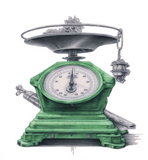
Heavier individuals may require higher doses of CBD for optimal effects due to an increased amount of body fat.
Cannabinoids are fat-soluble and may be stored in fat cells, reducing their availability in the bloodstream.
Start with a dosage recommendation based on your weight, and then adjust based on your observed response.
Metabolism Rate

Metabolic rate impacts how quickly your body processes and eliminates substances, including CBD.
People with faster metabolism might need a higher dose or more frequent doses of CBD as the compound is processed more quickly.
Begin with a standard dose and consider adjustments if the effects seem to diminish rapidly.
Genetics

Genetic factors, such as natural variations in the production of endocannabinoids or cannabinoid receptors, can influence how you respond to CBD.
For instance, a person with a genetic predisposition for lower endocannabinoid production might benefit more from higher doses of CBD.
However, without genetic testing, this can be a complex variable to measure directly. Instead, take note of your body’s response and adjust your CBD dosage accordingly.
Gender

Gender can play a role in the metabolism of substances due to physiological differences between men and women, potentially leading to different responses to CBD.
Hormonal differences can also affect the sensitivity of cannabinoid receptors. Women might consider starting at a slightly lower dose and monitor their body’s response before making dosage adjustments.
Age

As we age, our bodies undergo metabolic and physiological changes that can affect the absorption and metabolism of substances like CBD.
Older adults may experience slower metabolism, which could result in prolonged effects of CBD.
This could mean a lower starting dose might be sufficient. Always begin with the lowest recommended dosage and adjust based on your body’s response.
Health Status

Your overall health condition, including any chronic or underlying health issues, may influence your body’s response to CBD.
Certain health conditions might increase the body’s sensitivity to CBD, while others might necessitate higher doses for noticeable effects.
Consider consultation with a healthcare provider to determine a suitable starting dose considering your health status.
Lifestyle

Physical activity level, diet, and sleep patterns can all impact how your body metabolizes and responds to CBD.
Regular exercise and a balanced diet might enhance your body’s response to CBD, potentially necessitating a lower dose.
Monitor your body’s reaction to CBD as you incorporate it into your lifestyle and make adjustments as necessary.
Stress Level

Stress can impact the endocannabinoid system, potentially changing the effectiveness of CBD.
Higher stress levels might require higher doses of CBD, but it’s essential to consider other stress management techniques too.
Start with a standard dose and adjust based on your stress level and how your body responds.
Use of Other Medications
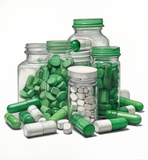
Some drugs may interact with CBD, affecting its absorption, distribution, metabolism, and excretion, and hence the effectiveness and potential side effects.
Always consult with your healthcare provider before starting CBD, especially if you’re taking other medications, and closely monitor any changes in how you feel.
CBD Formulation
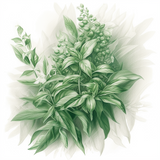
Different CBD products have different absorption rates.
For instance, CBD oils and tinctures are typically more bioavailable than oral capsules, meaning your body can use more of the CBD you ingest.
The method of consumption impacts the onset, intensity, and duration of the effects. Choose a formulation that fits your lifestyle and needs, and adjust your CBD dose based on the product’s bioavailability.
CBD Spectrum
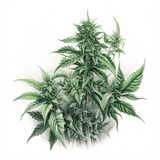
Full-spectrum, broad-spectrum, and CBD isolate products can have varying effects.
Full-spectrum products contain all the cannabinoids, including trace amounts of THC, which could increase CBD’s effectiveness due to the “entourage effect.”
Meanwhile, isolates only contain CBD, which might necessitate a higher dose for similar effects. Consider your personal preferences and legal limitations when choosing a product spectrum.
Time of Day

The time of day when you take CBD could influence its effects.
Some people may find CBD energizing and best taken in the morning, while others may find it more calming and prefer to take it in the evening.
Try different timing strategies to see what works best for your body and routine.
Hydration Levels

Staying properly hydrated can enhance your body’s ability to process CBD.
Dehydration could slow the absorption of CBD and diminish its effects.
Make sure to maintain adequate hydration when taking CBD.
Diet

High-fat meals can increase the bioavailability of CBD, potentially enhancing its effects.
Consider your dietary habits when deciding on a CBD dosing strategy, and remember to take CBD with a meal or snack for optimal absorption.
Tolerance
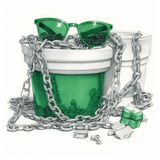
Regular use of CBD can lead to the development of tolerance, meaning you might need to increase your dose over time to achieve the same effects.
Monitor your body’s response to CBD, and adjust your dosage as necessary.
Alcohol Use
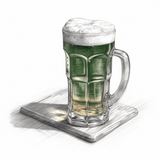
Alcohol can impact the metabolism of CBD and potentially enhance its sedative effects.
If you consume alcohol, consider its potential interaction with CBD, and consult with your healthcare provider for guidance on safe use.
Sleep Patterns

Sleep deprivation can impact your body’s response to CBD.
Adequate sleep might enhance the effectiveness of CBD. Consider your sleep patterns when assessing your body’s response to CBD, and adjust your dosage as necessary.
Starting CBD – Your First Dose
Right! Now that you understand what individual factors can effect CBD dosage, let’s start determining what the right dose it for you.
| Body Weight | Micro-dose | Low Dose | Typical Dose | Large-dose |
| <37.5kg | 5mg | 10mg | 13mg | 25mg |
| 38 – 70kg | 8mg | 12mg | 15mg | 30mg |
| 70-110kg | 10mg | 18mg | 20mg | 40mg |
| >110kg | 15mg | 22mg | 25mg | 50mg |
*Men are likely to require a 10-20% increase to dosage. Never take a high-dose of CBD and operate machinery or vehicles.
Start low and go slow — this is the widely accepted mantra when beginning your journey with CBD. You might start with a low CBD dose of around 5-10mg per day, gradually increasing by 5-10mg per day until you notice desired effects. For potential anxiety relief, initial doses are often higher, starting around 30-50mg.
This method, also known as titration, allows you to personalise your CBD dosage and minimise potential side effects. Remember, the goal isn’t to reach the highest dose possible, but to find a level that offers you the benefits you’re looking for. Don’t worry if you initially dose more than expected – CBD is very safe and well-tolerated by the body.
CBD Dosage for Different Products
CBD comes in many forms — from oils and capsules to topicals and edibles. Each product has a different rate of absorption (bioavailability), which can impact the effectiveness of the CBD dose.
CBD Oils and Tinctures: These are typically taken under the tongue, allowing CBD to be absorbed directly into the bloodstream through the mucous membranes. This method offers high bioavailability, meaning a 20mg CBD dose taken sublingually may have more noticeable effects than the same dose taken in capsule form.
CBD Capsules and Edibles: In edible form, CBD must pass through the digestive system before reaching the bloodstream, which can delay onset of effects but also extend their duration. This could be ideal for those seeking long-lasting relief, such as for chronic pain or sleep issues. A standard CBD dose in capsule form might range from 15-45mg.
CBD Topicals: These products are applied directly to the skin, targeting localised areas for relief of pain or inflammation. While not much CBD enters the bloodstream through the skin, it interacts with cannabinoid receptors in the skin’s surface. CBD dosage with topicals varies greatly depending on the product concentration and the area of application.
CBD Vapes: When CBD is inhaled, it enters the bloodstream almost immediately through the lungs. This method provides the quickest onset of effects, but they also tend to wear off sooner than other methods. Be aware that vaping may carry additional risks related to inhalation of the product’s base compounds.
Understanding CBD Concentration
The concentration of CBD in your chosen product plays a critical role in determining your CBD dose. CBD concentration is generally listed on the product label in milligrams (mg), indicating the total amount of CBD in the product. For instance, a 30ml bottle of CBD oil that contains 600mg of CBD has a concentration of 20mg of CBD per millilitre.
Keeping Track of Your CBD Dosage
Tracking your CBD usage and effects can be an invaluable tool on your journey to finding the optimal CBD dose. Keep a record of the amount of CBD you take, when you take it, and what effects you experience. This will help you gauge how your body responds to different doses of CBD and assist in tailoring your CBD regimen for maximum benefit.
Listening to Your Body
Everybody’s response to CBD is unique, and the optimal CBD dosage can vary. Therefore, paying attention to your body is of utmost importance. Some people may experience relief at a lower CBD dose, while others may require a higher amount to feel the same effects. If you experience unwanted side effects such as dizziness or upset stomach, it could be an indication that your dose needs adjustment.
Consistency is Key
Like any other health supplement, consistency is key when taking CBD. Regular usage can help maintain a stable level of CBD in your body, which can enhance the effectiveness of the endocannabinoid system.
Taking your CBD dose at the same times every day can also help make it a routine and ensure you don’t miss a dose.
Final Thoughts
Finding the right CBD dose can be a journey of personal exploration. It takes patience, attention, and a bit of trial and error. The most important aspect is to start low, increase slowly, and listen to your body. Remember, CBD is not about chasing a high dose, but rather about achieving balance and wellness in your life.
We hope this guide serves as a helpful starting point in understanding CBD dosage. If you’re interested in trying CBD or have more questions, feel free to get in touch. We’re always here to help guide you on your CBD journey.
Remember, this blog post is not intended as medical advice.